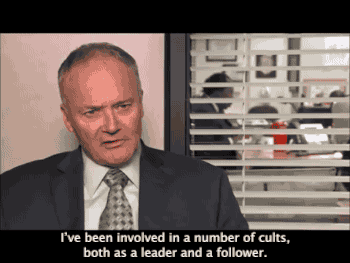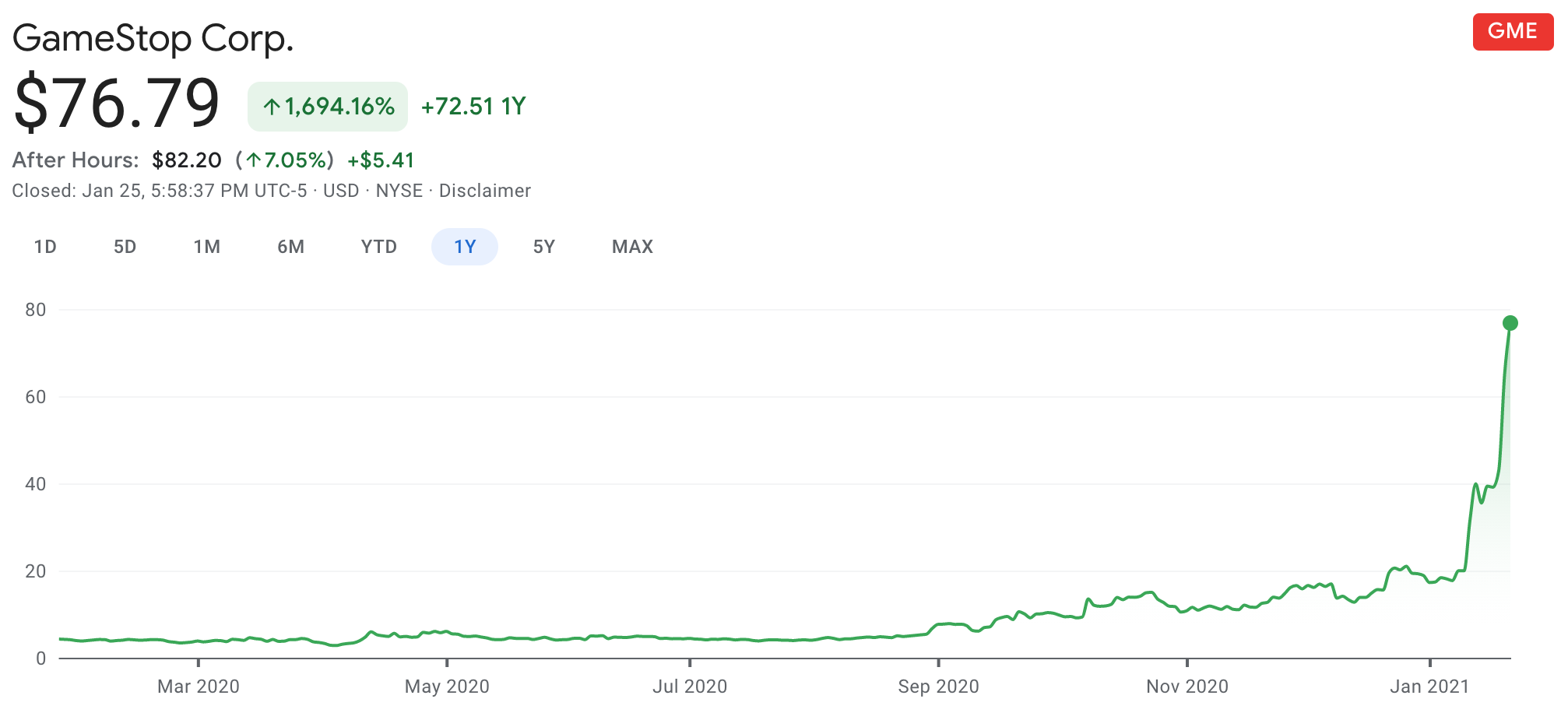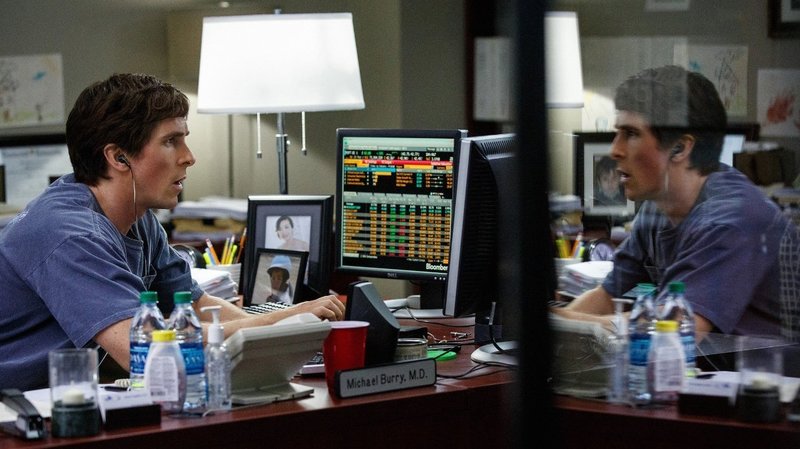February 14, 2021
Many people want to be writers. Few want to write.
The following quotes are for the times that you want to be a writer, but don’t want to write.

Professionals Show Up
Steven Pressfield’s The War of Art contains many gems.
Getting started is what’s tough:
There’s a secret that real writers know that wannabe writers don’t, and the secret is this: It’s not the writing part that’s hard. What’s hard is sitting down to write.
Fear is good:
Are you paralyzed with fear? That’s a good sign. Fear is good. Like self-doubt, fear is an indicator. Fear tells us what we have to do. Remember our rule of thumb: The more scared we are of a work or calling, the more sure we can be that we have to do it.
Do or do not, there is no try:
Are you a born writer? Were you put on earth to be a painter, a scientist, an apostle of peace? In the end the question can only be answered by action. Do it or don’t do it.
Put in the hours:
Someone once asked Somerset Maugham if he wrote on a schedule or only when struck by inspiration. “I write only when inspiration strikes,” he replied. “Fortunately it strikes every morning at nine o’clock sharp.”
That’s a pro.
The Alchemy of Working on the Right Project at the Right Time
[N]o amount of knowledge or tenacity or craftsmanship can substitute for the alchemy of working on the right project at the right time. My first book was written in response to the loss of a loved one – a grandfather who had essentially raised me – and eulogized not only a relationship, but also a particular phase of life. It took me a long time, and many false starts, to find my way to a project where I felt that same synthesis of subject and psychological state again. And when they come together, the writing itself changes: It doesn’t feel like work, it doesn’t feel like sentences in a holding pattern. It’s just necessity. (And then it’s revision, of course.)
– Téa Obrecht
The Gap Between Taste and Ability
Nobody tells people who are beginners – and I really wish somebody had told this to me – is that all of us who do creative work…we get into it because we have good taste. But it’s like there’s a gap, that for the first couple years that you’re making stuff, what you’re making isn’t so good, OK? It’s not that great. It’s really not that great. It’s trying to be good, it has ambition to be good, but it’s not quite that good. But your taste – the thing that got you into the game – your taste is still killer, and your taste is good enough that you can tell that what you’re making is kind of a disappointment to you, you know what I mean?
A lot of people never get past that phase. A lot of people at that point, they quit. And the thing I would just like say to you with all my heart is that most everybody I know who does interesting creative work, they went through a phase of years where they had really good taste and they could tell what they were making wasn’t as good as they wanted it to be – they knew it fell short, it didn’t have the special thing that we wanted it to have.
And the thing I would say to you is everybody goes through that. And for you to go through it, if you’re going through it right now, if you’re just getting out of that phase – you gotta know it’s totally normal.
And the most important possible thing you can do is do a lot of work – do a huge volume of work. Put yourself on a deadline so that every week, or every month, you know you’re going to finish one story. Because it’s only by actually going through a volume of work that you are actually going to catch up and close that gap. And the work you’re making will be as good as your ambitions. It takes a while, it’s gonna take you a while – it’s normal to take a while. And you just have to fight your way through that, okay?
– Ira Glass

The Fear of Making Something Lame
One of the biggest things holding people back from doing great work is the fear of making something lame. And this fear is not an irrational one. Many great projects go through a stage early on where they don’t seem very impressive, even to their creators. You have to push through this stage to reach the great work that lies beyond. But many people don’t. Most people don’t even reach the stage of making something they’re embarrassed by, let alone continue past it. They’re too frightened even to start.
– Paul Graham
Writing Is Similar to Trying to Seduce a Woman
Writing is similar to trying to seduce a woman. A lot has to do with practice, but mostly it’s innate. Anyway, good luck.
– Haruki Murakami
In his memoir, Murakami goes into a bit more depth regarding his writing process:
When I’m in writing mode for a novel, I get up at four a.m. and work for five to six hours. In the afternoon, I run for ten kilometers or swim for fifteen hundred meters (or do both), then I read a bit and listen to some music. I go to bed at nine p.m. I keep to this routine every day without variation. The repetition itself becomes the important thing; it’s a form of mesmerism. I mesmerize myself to reach a deeper state of mind. But to hold to such repetition for so long – six months to a year – requires a good amount of mental and physical strength. In that sense, writing a long novel is like survival training. Physical strength is as necessary as artistic sensitivity.
On Writing
I’ve saved the best for last. My favorite book about the writing process – and the one I’ve found the most useful – is Steven King’s On Writing.
What writing is about:
Writing isn’t about making money, getting famous, getting dates, getting laid, or making friends. In the end, it’s about enriching the lives of those who will read your work, and enriching your own life, as well.
On priorities:
It starts with this: put your desk in the corner, and every time you sit down there to write, remind yourself why it isn’t in the middle of the room. Life isn’t a support-system for art. It’s the other way around.
You need to read and write a lot:
If you want to be a writer, you must do two things above all others: read a lot and write a lot…Every book you pick up has its own lesson or lessons, and quite often the bad books have more to teach than the good ones…You cannot hope to sweep someone else away by the force of your writing until it has been done to you.
Similarly:
Reading at meals is considered rude in polite society, but if you expect to succeed as a writer, rudeness should be the second-to-least of your concerns. The least of all should be polite society and what it expects. If you intend to write as truthfully as you can, your days as a member of polite society are numbered, anyway.
On the writing process:
You can read anywhere, almost, but when it comes to writing, library carrels, park benches, and rented flats should be courts of last resort – Truman Capote said he did his best work in motel rooms, but he is an exception; most of us do our best in a place of our own. Until you get one, you’ll find your new resolution to write a lot harder to take seriously…
…The space can be humble (probably should be, as I think I have already suggested), and it really needs only one thing: a door which you are willing to shut. The closed door is your way of telling the world and yourself that you mean business; you have made a serious commitment to write and intend to walk the walk as well as talk the talk.
By the time you step into your new writing space and close the door, you should have settled on a daily writing goal. As with physical exercise, it would be best to set this goal low at first, to avoid discouragement. I suggest a thousand words a day, and because I’m feeling magnanimous, I’ll also suggest that you can take one day a week off, at least to begin with. No more; you’ll lose the urgency and immediacy of your story if you do. With that goal set, resolve to yourself that the door stays closed until that goal is met…
…[Y]ou need the room, you need the door, and you need the determination to shut the door. You need a concrete goal, as well. The longer you keep to these basics, the easier the act of writing will become. Don’t wait for the muse. As I’ve said, he’s a hardheaded guy who’s not susceptible to a lot of creative fluttering. This isn’t the Ouija board or the spirit-world we’re talking about here, but just another job like laying pipe or driving long-haul trucks. Your job is to make sure the muse knows where you’re going to be every day from nine ’til noon or seven ’til three. If he does know, I assure you that sooner or later he’ll start showing up, chomping his cigar and making his magic.
On having support:
Writing is a lonely job. Having someone who belies in you makes a lot of difference. They don’t have to make speeches. Just believing is usually enough.
Persistence is key:
[S]topping a piece of work just because it’s hard, either emotionally or imaginatively, is a bad idea. Sometimes you have to go on when you don’t feel like it, and sometimes you’re doing good work when it feels like all you’re managing is to shovel shit from a sitting position.
Drugs aren’t necessary:
The idea that creative endeavor and mind-altering substances are entwined is one of the great pop-intellectual myths of our time.
On rewriting:
When you write a story, you’re telling yourself the story…when you rewrite, your main job is taking out all the things that are not the story.
Write with the door closed, rewrite with the door open.
Finally, how to know if you’re talented:
If you wrote something for which someone sent you a check, if you cashed the check and it didn’t bounce, and if you then paid the light bill with the money, I consider you talented.
Notes:
More …
February 10, 2021
In my last post, I wrote about the GameStop short squeeze, the allure of Wall Street Bets, and how the theory of reflexivity can teach us about the broader societal implications of the trading frenzy. Two weeks later, the party is over and (once again) retail investors got the short end of the stick.
Small investors were inveigled into a trade where they lost their shirts and some big players and market makers made out like bandits. For about two days, buying GameStop stock was a “movement”. That is, until it became clear that the market is brutally efficient and doesn’t care about populist rhetoric. At that point, the GameStop trade turned into a game of “who is holding the bag”. When your investment thesis depends on the assumption that the mainstream media is outright lying to you and that massive fraud exists in the market, it’s time to get out.
How did this happen? I’m not going to go into a play-by-play of what happened – enough has been said about this. Rather, I’ll use GameStop as a case study for how reasonable, smart people get caught up in manias, cults, and mass movements.

Wall Street Bets is Dead…
…and we have killed her. A month ago, Wall Street Bets was a subreddit with some stupid memes and outlandish options bets, but also with people who actually knew something about finance LARPing as “retards”. There was solid due diligence: in-depth analysis of companies’ financial statements along with market sizing and strategic growth prospects. Some of the analysis wasn’t that much different from the first draft of an investment memo for a buy-side firm.
As this Reddit comment states:
Redditors never seem to stop and think about why the WSB guys know so much about derivatives trading. Or how they seem to know how to access and read from a Bloomberg terminal. Or why there are so many users there that can seemingly drop tens or hundreds of thousands of dollars on complicated meme plays.
How do you think that WSB knew that GME was open to a short squeeze and a gamma squeeze play?
WSB’s power users are younger finance bros. It’s 30-something investment bankers and portfolio managers memeing with each other and cosplaying as “autists.”
If you didn’t know what a gamma squeeze was 48 hours ago, you are their exit strategy and the down payment on their next Porsche.
When the subreddit was a fringe group of people who actually knew something about finance, there was alpha to be found in its insights. Wall Street Bets was about getting some laughs in the pursuit of fuck-you money. However, over the past few weeks, Wall Street Bets was flooded with newcomers (it quadrupled in size over the course of about a week) who, along with the mainstream media, turned the GameStop trade into a “movement” and “taking on the hedge funds”.
In retrospect, this was the writing on the wall:
We Are All Monkeys
Let’s revisit a classic psychology experiment, which apparently never happened. Nevertheless, it is a good allegory for the GameStop trade (and the business world in general).

A scientist places five monkeys in a locked room. Inside the room, there is a ladder with a bunch of bananas at its top. Each time a monkey climbs the ladder to try to reach the bananas, the scientist pulls him down and sprays him – as well as all of the other monkeys in the room – with a stream of cold water.
After this cycle repeated a few times, the monkeys learn that climbing the ladder leads to a faceful of cold water. So, each time that a monkey begins to climb the ladder, the other monkeys in the room pull him down so they can avoid being sprayed.
The scientist removes one of the original monkeys from the room. The monkeys’ self-policing continues. When the new monkey tries to climb the ladder, the others pull him down. The new monkey learns that he shouldn’t climb the ladder.
Here’s the kicker: The scientist replaces all of the monkeys in the room, one by one. By the end of the experiment, none of the original monkeys (the ones that had been sprayed with cold water) are left in the room. But all of the new monkeys continue to pull down any monkey that climbs the ladder, without knowing why they are doing it.
Now we modify this experiment slightly. Rather than replacing the monkeys in the room, the scientist simply adds new monkeys. But midway through the experiment, the power goes out! The scientist can’t see any monkeys climbing the ladder. The original monkeys realize that this is their opportunity – they scramble up the ladder and eat all of the bananas. By the time the power comes back on, the new monkeys continue to pull one another down from the ladder and are left diamond-handing (💎 🤲) banana peels.

Cults Are Fun
It’s fun to be one of the monkeys in this room. You’re among a group of people who are excited about something; they have some special knowledge that promises to make them fabulously wealthy. Their knowledge is doubted by the mainstream, but their prophecies keep coming true.
They have a special language that distinguishes them from the outgroup. You are welcomed as a part of the tribe, you start to lose yourself in the fantasy of becoming rich and become swept up in the mob, experiencing a bit of the loss of self that comes from being a part of a mass movement.
There is a huge sense of urgency. You can get in on this thing, but only if you act now. Your heart beats a little bit faster – that’s FOMO. You’re experiencing optimism bias – because you understand what is happening, this is bound to work out for you.
All you need to do is buy in and hold on. Anyone who defects from the party line is subject to ad hominem attacks. They are relegated to the outgroup.
The goalposts keep moving. Every time a price target is reached, the ceiling is raised. $100 is not a meme. $420.69 is not a meme. $1,000 is not a meme. $10,000 is not a meme!
The mainstream media is not to be trusted. They weren’t on your side to begin with – why would they be now? There is a disinformation campaign going on – your group has been infiltrated. You don’t know who and what to trust, so you need to stop thinking for yourself and have blind faith in the process. Groupthink abounds.
Retail investors are selling more than they’re buying? That data is suspect. You choose to ignore information from sources that you previously considered valid because this doesn’t fit the narrative (fallacy) that you and the others have created.
As you begin to lose money (or unrealized gains) on your position, you dig in deeper. You become anchored to the gains that you were already counting in your head. You won’t settle for anything less! You’d never buy in at these levels, but what you already have? Of course you let it ride – the endowment effect in action. You fall for the sunk cost fallacy and throw good money after bad to double down on your position.
It’s hard to exit the echo chamber. You don’t want to admit to yourself that you were taken for a ride; that you only have yourself to blame for the losses you endured. You want to keep believing. The ending to the story is so much better if you keep believing.

Originally I included this gif simply because it was funny, but in writing this essay, I realized that it’s actually quite apt. The people who got in and out of this trade early made a boatload. The followers had a lot of fun (for a while), got caught up in the mania, and lost money.
Cults Abound
We all want to belong to something greater than ourselves. Smart people are no different – they are drawn to cults all of the time.
Look at the annual mass exodus from San Francisco to Black Rock City to celebrate Burning Man. Or Silicon Valley executives who wear Vipassana retreats as a badge of honor. The best startup cultures are often described as “cult-like”. You either fully buy into the mission or you’re out. Think Uber and its “you eat what you kill” attitude (at least until Travis left), or Roam Research, which fully embraces the #roamcult hashtag and even has a compound in Utah.

Cult Vibes (image via The Information)
Zooming out a bit, SoulCycle and other premium fitness classes are both:
- A signal of wealth and
- Cult-like in their intensity, adherence to strict guidelines, and hero worship of individual instructors.
Even mainstream (i.e., moderate) organized religion is simply a cult that has stopped taking itself so seriously. Moving to extremist religion, terrorists are relatively wealthy and well-educated. They disproportionately hold engineering degrees. Scott Alexander makes the compelling argument that this can, at least partially, be attributed to epistemic learned helplessness, the idea that sometimes the most rational thing that someone can do is to ignore an argument that they can’t refute.
[A] sufficiently smart engineer has never been burned by arguments above his skill level before, has never had any reason to develop epistemic learned helplessness. If Osama comes up to him with a really good argument for terrorism, he thinks “Oh, there’s a good argument for terrorism. I guess I should become a terrorist,” as opposed to “Arguments? You can prove anything with arguments. I’ll just stay right here and not blow myself up.”
So perhaps epistemic learned helplessness (or rather, lack thereof) can help explain why smart people can be so drawn to scams, cults, and mass movements. When one is used to seeing the world in a way that others don’t – and, quite frankly, feeling intellectually superior to others – it is easy to lose the humility and self-doubt that would have helped during the GameStop scenario. Being intellectually aware of the cognitive biases that we face as human beings is different from (and even perhaps inversely correlated to) the ability to step back and say, “This is crazy, I’m out.”
Cults aren’t inherently a bad thing. Just know when you’re in one and have an exit strategy for when it’s time to leave.
Notes:
More …
January 25, 2021
Over the past several weeks, GameStop stock has traded more like a cryptocurrency than a failing mall-based retailer.

What is going on here?
In one sentence: Institutional investors short GameStop (i.e., the prevailing wisdom, at least until the past few weeks) are playing a game of chicken with retail investors & contrarian institutions who are long.
The Current Situation
GameStop is a video game retailer; it has been in decline for several years now. Video games have moved to an online, direct-to-consumer distribution model. Foot traffic in malls (where most GameStops are located) was down even before COVID; many mall-based retailers are struggling.
Unsurprisingly, over the course of 2020 this led to GameStop becoming one of the most shorted stocks on Wall Street.
However, there were early signs that GameStop was undervalued. Michael Burry (of The Big Short fame) took a large long position in 2019, claiming video game discs are not entirely dead. In August 2020, Roaring Kitty (a.k.a. u/DeepFuckingValue on Reddit) published a video detailing why GameStop was a good play based on its fundamentals – a future short squeeze would just be the icing on the cake.

Christian Bale playing Michael Burry
On January 11th, Ryan Cohen (founder of Chewy, which sold to PetSmart for $3.35 billion), joined GameStop’s board after his investment firm built up a 10% stake in the company. At this point, retail investors, especially those on the popular subreddit Wall Street Bets went crazy. They highlighted that GameStop was now a growth play. It is now led by a previously successful founder, its online business is growing at a 300% rate, and it is in the process of turning around its core business. As such, GameStop should be valued at a Venture Capital multiple of 10x+ revenue, rather than a measly 0.5x revenue.
This narrative is compelling. Despite short sellers warning otherwise, GameStop has continued to climb in price. All of the GameStop options issued (with a high strike price of $60) were in the money on Friday (1/22/2021), trigging a gamma squeeze as institutions who had written the options rushed to cover their positions. GameStop closed Friday at $65.01.
On Monday (1/25/2021), GameStop opened at $96.73, spiked at $159.18 (likely because of another gamma squeeze), then crashed with pressure from institutional shorts, closing at $76.79 (still up 18% day-over-day).
But the bulls aren’t finished with GameStop. These gamma squeezes are nothing compared to what will be coming: the near-mythical “Infinity Squeeze”. Most famously seen with Volkswagen in 2008, when short sellers are forced to cover their positions due to a margin call, the price of the stock rapidly rises (hypothetically to infinity) since the number of shares shorted exceeds the number of shares available to buy.

VW Short Squeeze via FT
The Allure of Wall Street Bets
Can a subreddit comprised of retail investors really move the market like this? I doubt it – all of the big swings in this stock have been caused by institutions. What this subreddit does is control the narrative.
First unveiled to the mainstream finance world in a February 2020 Bloomberg article, Wall Street Bets is profane (as I’m sure you’ve noticed if you clicked any of the links in this post). But Wall Street Bets isn’t some sinister, market-manipulating entity. Rather, it is a virtual water cooler for individual retail investors to post memes – and emojis, oh so many emojis – about their investments.
Reading Wall Street Bets feels like the discussion at a middle school cafeteria table circa 2000. Redditors on Wall Street Bets (who refer to themselves affectionately as “autists” or “retards”) encourage one another to have “diamond hands” (💎 🤲), the will to stay strong and not sell a stock when things are going poorly. Contrast this with the “paper hands” (🧻 🤲) of those who are weak-willed and sell a stock based on market sentiment. Companies are headed “to the moon” (🚀). Bears are not mentioned without the adjective “gay” (🌈 🐻). Self-deprecating cuckold references to “my wife’s boyfriend” abound.
Despite this language (or perhaps because of it), Wall Street Bets is one of the most entertaining and informative places on the internet. People post meaningful analysis of companies that are undervalued and why they are investing. Browsing the subreddit, you get a crash course on concepts that you would otherwise learn only at a buy-side firm or working as an options trader: EBITDA multiple, book value, delta hedging, implied volatility.
But the most compelling aspect of Wall Street Bets is in its name: the bets. The ability to gain (or lose) a life-changing amount of money – with screenshots to prove it – creates an environment similar to that of the casino floor. And if Wall Street Bets is the casino floor, then Wall Street itself is the house.
The same emotion that caused us to root for the thieves in Ocean’s 11 is what makes Wall Street Bets so enticing. Put frankly, Millennials are tired of getting fucked by the man. When you’re underemployed with $100,000 in student loan debt, your financial situation feels overwhelming. You really don’t want to take the advice of your parents or CNBC talking heads to invest 10% of your salary for a 4% annual return. At that point, what’s another $5,000? Might as well buy some short-dated GME calls.
For those of use who don’t fit the underemployed Millennial archetype, Matt Levine’s Boredom Markets Hypothesis applies. COVID has required us to work from home, without much ability to spend for travel, dining, or entertainment. Putting money into Robinhood is a decent substitute – with the added bonus of it being an “investment”, rather than consumption. In an age where the Fed will print seemingly unlimited money to prop up capital markets, better to be irrational exuberant as a part of the market than be left out of the party.

Further, the narrative presented by the GameStop trade in particular is compelling. It allows the small retail investor to play a role in market events normally only played out at the hedge fund scale (a short squeeze was a key plot element in Season 1 of Billions). The short sellers in this case aren’t particularly sympathetic: Andrew Left of Citron Research released a video in which he lays out the bear case for GameStop. His main argument was a smug appeal to authority, essentially claiming “Wall Street knows better than you people on message boards”.

Billions, IRL (image via Forbes)
So sure, Wall Street Bets is irreverent, has irrational exuberance, and is guilty of hero worship (Elon Musk and more recently Ryan Cohen). But it also provides a sense of community during the stresses of COVID and provides a compelling way for the little guy to stick it to the man.
As Keynes reminded us (in the most overused finance quote of all time): “The markets can remain irrational longer than you can remain solvent.” When enough people believe in a vision, it can cause that vision to manifest itself. Wall Street is scared that retail investors can manifest their own vision, rather that the one dictated by the major financial players.
What George Soros Got Right
The entire GameStop scenario is a case study in reflexivity. Reflexivity is the idea that our perception of circumstances influences reality, which then further impacts our perception of reality, in a self-reinforcing loop. Specifically, in a financial market, prices are a reflection of traders’ expectations. Those prices then influence traders’ expectations, and so on.
This may seem obvious to some, but it flies in the face of the efficient-market hypothesis. As Soros states,
What makes reflexivity interesting is that the prevailing bias has ways, via the market prices, to affect the so-called fundamentals that market prices are supposed to reflect.
What does this mean for GameStop? Because of traders’ bullish sentiment, a previously failing company is now in the position where it can leverage the overnight increase in value to make real, substantive changes to its business. GameStop can pay off debt through the issuance of new shares or make strategic acquisitions using its newly-valuable shares. A struggling company could become solid simply not because of a change in the underlying business, but because investors decided it should be more valuable.
Reflexivity may be the best way to understand the 21st Century. Passive investing is an example of reflexivity in action. So is winner-take-all venture investing. Uber raised an absurd war chest, causing more investors to want to pile in, which led to more fundraising and eventually a successful IPO. The fact that Uber has not yet turned a profit, yet today has a $100 billion market cap, cannot be explained with traditional financial thinking, but can be explained by reflexivity.
The internet and instant communication only accelerates these trends. Instances of reflexivity like the strange market movements we’ve seen with GameStop are happening more and more – not only in financial markets, but also in the political and social realm, to incredible effect.
When Donald Trump won the presidency in 2016, I distinctly remember writing in my journal: “Anything is possible.” I was blown away that this complete buffoon of a man, someone who the Huffington Post refused to cover as politics meme-d his way into the presidency. He was a joke, until suddenly, in a Tulpa-esque twist…he wasn’t. Similarly, internet conspiracy theories spread via Facebook memes manifested themselves in the real world when Trump supporters stormed the Capitol a few weeks ago.
Our perception shapes reality. And when enough people agree on a specific perception, it becomes reality. As we become more and more connected, discourse will expand and and accelerate. We’re going to see some strange things become reality.
Even, perhaps, hedge funds going bankrupt and newly-minted millionaires, all because of some people who wrote about a struggling video game retailer on Reddit.
Notes:
More …
January 18, 2021
When I was six years old, I joined the chess club at my school. I remember thinking at the time that chess club must be about the coolest after-school activity imaginable for a first grader.

Who needs video games when you've got this?
Twice a week, a man (probably just a high school student, but when you’re six years old, everyone over 15 seems like an adult) came to our classroom to give us chess lessons. We learned how the pieces moved, their relative importance, and basic tactics. We studied some famous games; all of us were amazed to learn that it might make sense to sacrifice your queen in order to win a few moves later.
In retrospect, I don’t think that Highland Ranch Elementary School was some bastion of intellectualism; rather, I was just an extremely nerdy kid.
Twenty years went by and I didn’t think very much about chess. But over the past few months I’ve become semi-obsessed. In the past year, I’ve gone from about the 15th to 75th percentile of players on Lichess.
Chess as Boxing
I became interested in chess about the time that I started boxing training. The two are more similar than they appear at first glance. In both chess and boxing, it is imperative that you:
- Control your emotions. If you’re overexcited, you will make mistakes. You need to be coldly rational and calculating to win.
- Balance offense with defense. If you are overly attacking, you leave yourself open to counterattacks that will do damage. Aggressive gambits can work, but if your opponents sees what you’re doing and counters, look out.
- Let go of your ego. You will get beaten up (physically or metaphorically). Learn from it and get better.
- Think ahead. Whether you’re thinking several moves ahead or throwing combinations that will open up space for punches in different areas, what you do now impacts what happens down the line.
- Always protect your king. (Keep your hands up.)

Potential future in chessboxing? Photo via Huck Mag
Beware Cartesian Dualism
Chess teaches how our physical state impacts our mental state, and vice versa. If I haven’t gotten a full night’s sleep, I lose way more games than I win. Same goes if I am distracted by a problem that I’m thinking about at work.
I’ve taken to using chess as a heuristic to determine if I’m in the right state of mind to start a project that requires a lot of brainpower. I ask myself: If I were to play a few chess games right now, would my Elo rise or fall? If it would fall, best to get some rest before tackling complex work or making any major decisions.
Chess requires intense focus. To win a game of chess (against an opponent at a similar skill level), you need to block out the rest of the world. Being able to think deeply solely about the pieces on the board in front of you is both an intellectual indulgence and a way to train your mind. In a world where we are bombarded with information, chess can make you a better student, entrepreneur, investor, or employee by teaching the focus required to block out the noise and attack the complex problem at hand.
Overall, I’ve come to see chess as a beautiful game. A good move in chess is elegant. You have to give your opponent credit for trapping you in a way that you didn’t see coming. Conversely, there is no better feeling than when your opponent makes a move you knew they would make, and you have a better move to counter.
If that’s not a metaphor for the business world, I don’t know what is.
Notes:
More …
January 11, 2021
Ben Thompson discusses new defaults, claiming we need to move faster and challenge the status quo in order to accomplish more as a society. He cites COVID response, specifically with regards to vaccine approval, as an area in which we should have prioritized moving more quickly in order to save more lives.
This is a sympathetic argument. Essentially, it is a specific instance of the Great Stagnation. While the development of this vaccine is a win for humanity, we should be moving even faster by incorporating lessons from the tech industry and software development best practices.
The obvious counterargument is a combination of Chesterton’s Fence and ergodicity. Chiefly, decisions that have the potential to cause significant detriment should be made with an abundance of caution and a full understanding of the terrain. Placing bets with, say, a 90% chance of a positive payoff for society and a 10% negative payoff will be net negative over the long run. In other words, you’d be rational to not play a game of Russian Roulette for $1 million, despite the game’s high expected value.
Thompson argues that both authoritarian and liberal regimes can implement these new defaults. However, the relevant axis on which to evaluate countries’ default attitude towards COVID and technological progress isn’t authoritarianism vs. freedom, but rather peacetime vs. wartime mindset.

Decidedly not the U.S. COVID response
FDA approval processes (and many of the other governmental processes in liberal democracies) are built around peacetime opportunity costs. They prioritize safety over rushing to get a vaccine out the door. When the opportunity cost changes (i.e., there is a new global pandemic and lives are on the line) those institutions have trouble updating their behavior accordingly.
Conversely, authoritarian regimes are much more militant. You see this in China’s approach not only to the virus, but in audacious economic initiatives (e.g., Belt & Road) and the defense of its political ideology on the world stage.
That mindset is actually similar to the democracies that have responded best to COVID. Israel (very much a “wartime” country – mandatory military service, surrounded by its enemies, etc.) is blowing the rest of the world out of the water in its vaccination implementation. In normal times, it is a powerhouse of innovation, largely due to elite technological groups in the military. South Korea (another country with mandatory military service, has an enemy with nuclear weapons to the north) had a great COVID response. And Taiwan, a country that faces constant existential threat from China,
[E]xhibited the exact same sort [of] can-do attitude alongside a free press, elections, and pig intestines in the legislature.
The US last had a “wartime” mindset during World War II. Many of the innovations in the following period – nuclear physics, the space race, computers, etc. – can be directly attributed to the massive mobilization effort and public-private partnerships of the time.

So the question to ask is: How do we cultivate the wartime mindset that leads to innovation? And if COVID can’t catalyze this, what can?
Notes:
More …















